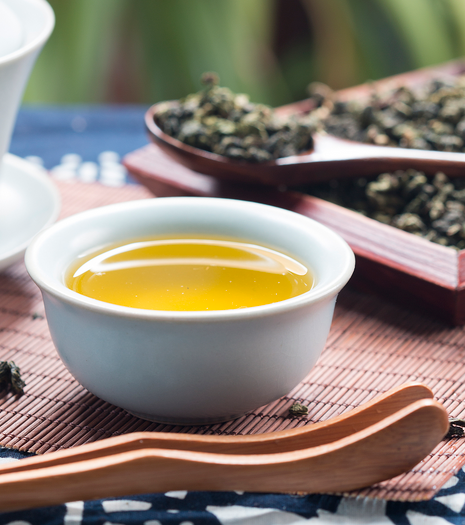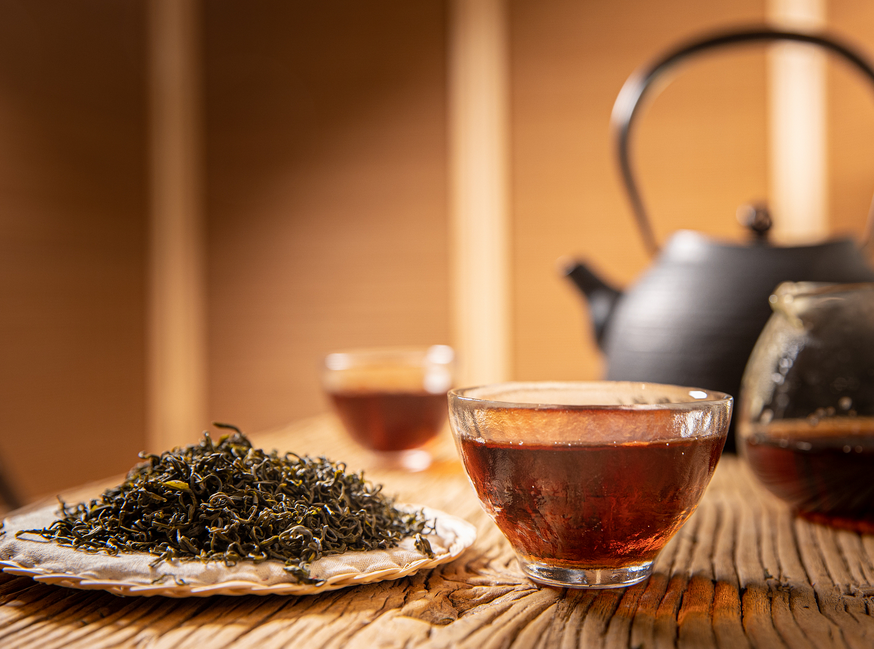Oolong tea, a traditional Chinese beverage, has been cherished for centuries not only for its unique flavor but also for its numerous health benefits. This semi-oxidized tea bridges the gap between green and black teas, offering a rich taste and a wealth of health-promoting properties.
What is Oolong Tea?
Oolong tea is produced through a unique process that involves partial oxidation, placing it between green (unoxidized) and black (fully oxidized) teas. This method results in a diverse range of flavors and aromas, depending on the specific processing techniques and oxidation levels.
Nutritional Profile
A typical cup of oolong tea contains:
- Calories: 2.4
- Caffeine: 38.4 mg
- Potassium: 28.8 mg
- Calcium: 2.4 mg
- Magnesium: 2.4 mg
Beyond these nutrients, oolong tea is rich in antioxidants like polyphenols, theaflavins, and catechins, which contribute to its health benefits.
Oolong Tea Benefits
Weight Management
Oolong tea can aid in weight loss by boosting metabolism and enhancing fat oxidation. Studies have shown that regular consumption may lead to a reduction in body fat and body weight.
Heart Health
Regular intake of oolong tea has been linked to improved heart health. It may help lower cholesterol levels and reduce the risk of heart disease by improving blood circulation and reducing inflammation.

Blood Sugar Control
Oolong tea may assist in regulating blood sugar levels, making it beneficial for individuals with type 2 diabetes or those at risk. Its polyphenols can improve insulin sensitivity and reduce blood glucose levels.
Digestive Health
The antioxidants in oolong tea promote healthy digestion by reducing inflammation and supporting the growth of beneficial gut bacteria. It can also alleviate digestive issues like bloating and indigestion.
Skin Health
Oolong tea’s antioxidant properties can improve skin health by combating free radicals, reducing signs of aging, and alleviating skin conditions like eczema.
Bone and Dental Health
Rich in minerals like calcium and magnesium, oolong tea supports bone density and dental health. Its fluoride content also helps prevent tooth decay.
Mental Well-being
The combination of caffeine and the amino acid L-theanine in oolong tea can enhance brain function, improve alertness, and reduce stress levels, contributing to better mental health.

Brewing the Perfect Cup
To maximize the benefits of oolong tea:
- Use fresh, filtered water heated to around 85–90°C (185–194°F).
- Steep the tea for 3–5 minutes, adjusting to taste.
- Use about 1 teaspoon of loose leaves per 8-ounce cup.
- Avoid over-steeping to prevent bitterness.
Potential Side Effects and Considerations
While oolong tea is generally safe, excessive consumption can lead to side effects due to its caffeine content, such as insomnia or increased heart rate. It’s advisable to limit intake to 3–5 cups per day and consult a healthcare provider if you have any health concerns.
Conclusion of oolong tea benefits
Incorporating oolong tea into your daily routine can offer numerous health benefits, from weight management to improved mental well-being. Its rich nutritional profile and antioxidant content make it a valuable addition to a healthy lifestyle.



